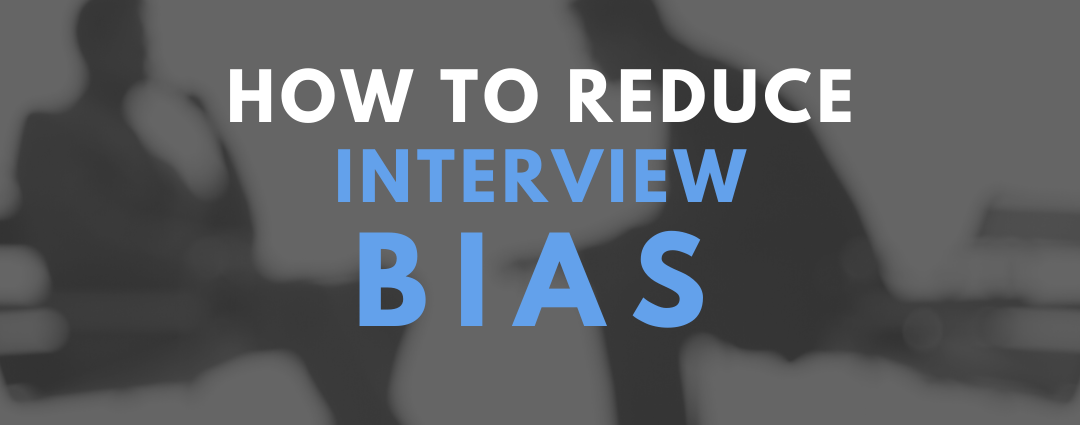Overcoming Interviewer Bias: Strategies for Fair and Effective Hiring
Interviewer bias is a persistent challenge in the hiring process, one that can significantly impact the fairness and effectiveness of your recruitment efforts. While promoting or hiring from within may seem like a way to avoid bias, it often leaves external candidates at a disadvantage, making it harder for them to break into a new firm.
Despite the best efforts to conduct objective interviews, biases can subtly influence decisions. Hiring managers may unconsciously seek out candidates who share their interests or background, or they might rely too heavily on first impressions. In a competitive job market, these biases can skew the process, making it difficult to identify the best candidate for the role.
So how can you minimize interviewer bias and ensure a fair hiring process? Here are some strategies to help you make more objective and effective hiring decisions.
1. Focus on Job Performance, Not Just Skills
The most critical factor in hiring should always be whether the candidate can do the job effectively. It’s essential to keep the job requirements front and center during the interview process. Rather than getting caught up in first impressions or whether a candidate ticks every box on the job description, focus on their ability to excel in the role based on their past work experience and potential for growth.
2. Reserve First Impressions for the End
First impressions are powerful, but they can also be misleading. Rather than letting them dictate your initial assessment of a candidate, try to reserve judgment until the end of the interview process. By doing so, you can ensure that your decision is based on a more comprehensive evaluation of the candidate’s qualifications and how they’ve performed during the entire interview.
3. Challenge Your Assumptions
When you find yourself favoring a candidate, take a moment to ask why. Are you drawn to them because they are genuinely the best fit for the job, or do they simply share similar interests or qualities with you? It’s crucial to challenge your assumptions and keep an open mind throughout the interview process. A bit of skepticism can lead to more balanced and objective decision-making.
4. Maintain Consistency in Interviews
Consistency is key to reducing bias. Ensure that you ask all candidates the same set of questions, allowing you to compare their responses fairly. This approach also helps prevent emotional responses or off-script questions that might introduce bias. Consider using a structured interview format with pre-determined questions to keep the process objective and focused on job-related criteria.
5. Start with Phone Interviews
While in-person interviews are more personal, they can also introduce visual biases. Starting the process with a phone interview can help minimize these biases by focusing solely on the candidate’s qualifications, experience, and communication skills. This initial screening can provide a more impartial assessment before moving on to face-to-face interactions.
6. Involve a Team in the Interview Process
Instead of conducting interviews solo, consider organizing a panel of 2-3 interviewers. A diverse panel can provide multiple perspectives and help counteract individual biases. By assigning different roles within the panel, you can ensure a more balanced evaluation of each candidate, reducing the influence of any one person’s biases.
Creating a Fair Interview Process
Every interview should give candidates the opportunity to present themselves at their best. To achieve this, it’s essential to minimize the impact of interviewer bias. By focusing on job performance, reserving first impressions, challenging assumptions, maintaining consistency, utilizing phone interviews, and involving a team in the process, you can create a more fair and effective hiring strategy.
At Ave Staffing, we understand the importance of fair and unbiased hiring practices. By implementing these strategies, you can ensure that your recruitment process is as objective and effective as possible, helping you identify the candidates who are truly the best fit for your organization.

